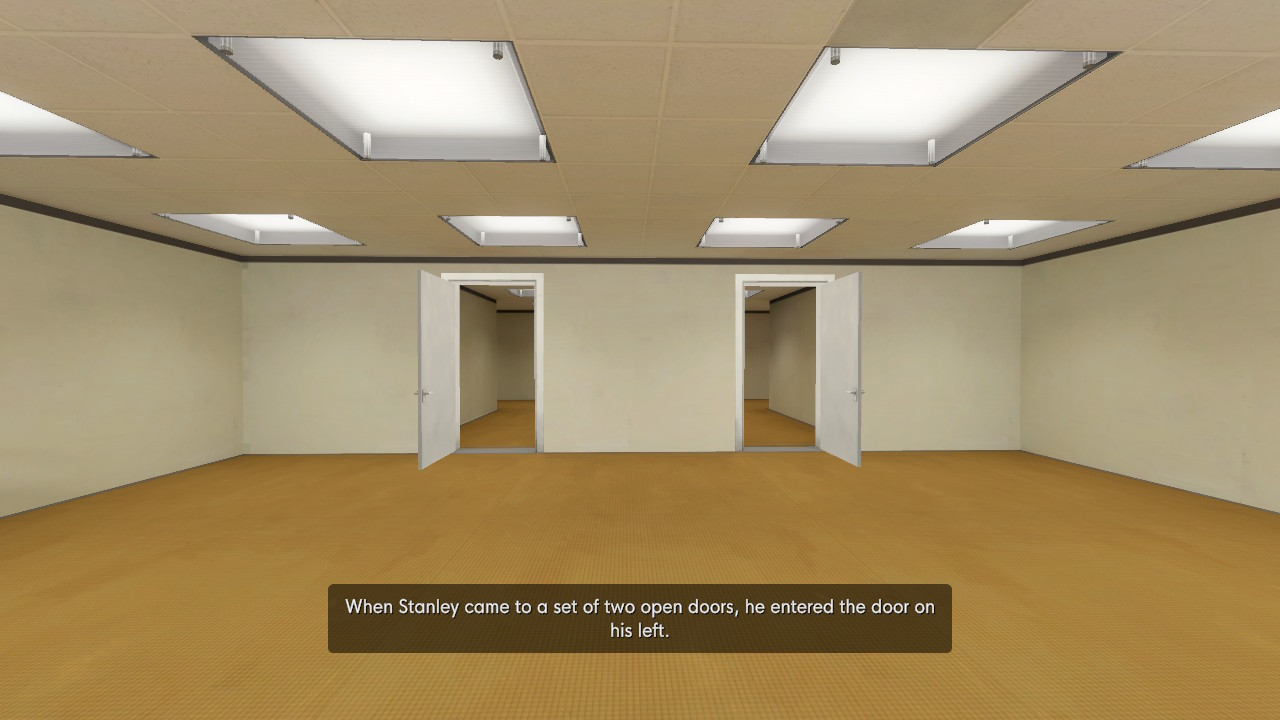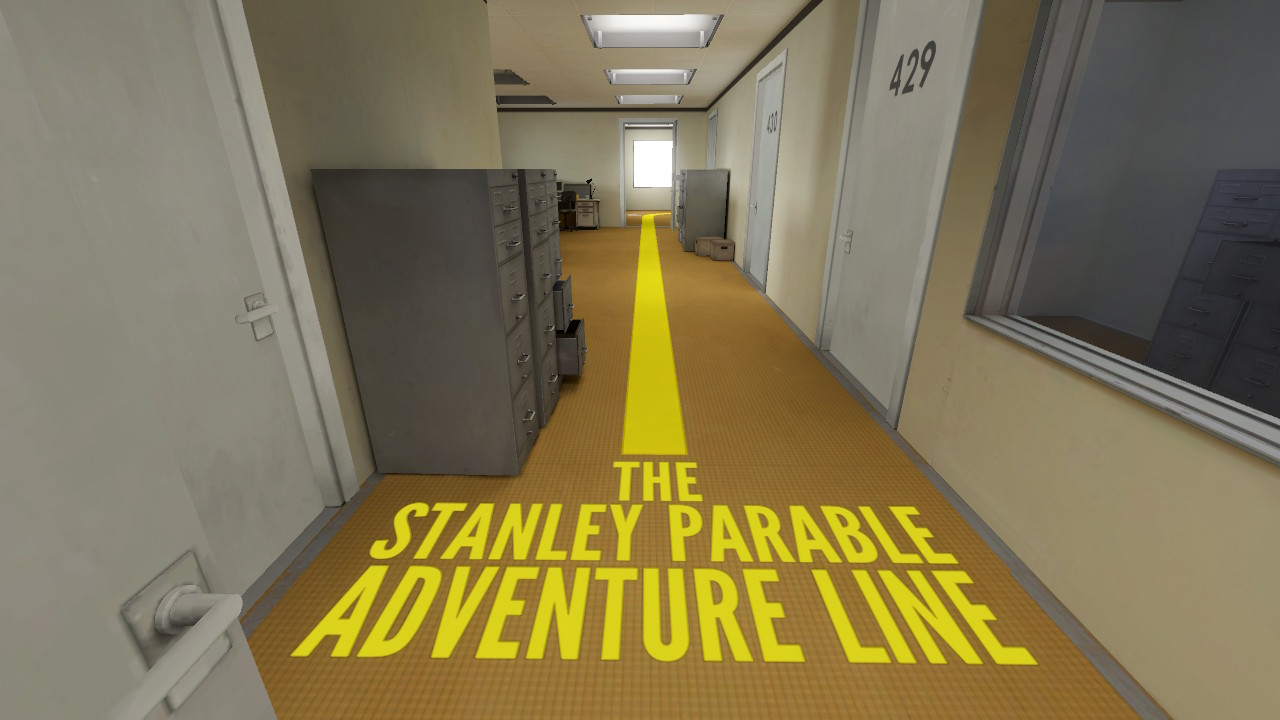Even taking into consideration the gaming industry as a whole, I would argue that it is very hard to find games that can be categorized as comedy.
Of course, it must be said that there are in fact lots of video games where humor is a present ingredient, but games intrinsically related to the comedy genre are actually a rarity. The Stanley Parable was one of these few comedy games, and at the time of its first release in 2013, it delivered an extremely unique, narrative-focused experience that worked so well thanks to its direct references to certain genres and game styles that were extremely popular at the time.

Now, almost ten years after its original release, The Stanley Parable: Ultra Deluxe promises not only to bring the original experience to the Nintendo Switch, but also to expand it with the inclusion of new content. Is that enough? To be honest, at first glance, I was skeptical about whether The Stanley Parable would still work after all these years. After all, there was the possibility that its discussions about the nature of choice in video games could feel outdated and silly to modern standards. However, I was pleasantly surprised to (re)discover that The Stanley Parable is still as funny and fresh today as it was back then. Better yet, the extra content offers an entirely new range of discussions that expand the game’s meta-narrative into unique territories.
Talking about The Stanley Parable for this review is a tricky job, because it’s one of those types of games where part of the fun lies in learning what it is all about. I must say, though, if you have any type of interest in games with a strong meta-language and tons of humour, then you’re bound to have tons of enjoyment with what The Stanley Parable has to offer. You see, this is a game that starts with a very simple (yet, weird) premise. You control Stanley, an employee of a set company, whose main job is to type the prompts that appear on his computer screen. One day, no new prompt appears, and Stanley decides to leave his office to try to discover what happened. That’s exactly where the game starts.

While the bland-looking corporate office where Stanley works seems to be entirely empty at first, with absolutely no sign of any of his co-workers anywhere, Stanley isn’t actually alone. To accompany him (and you) throughout the whole The Stanley Parable adventure, there is one extra character that really transforms this game into something special and unique: The Narrator. At first, this figure seems to be a normal observer, who will comment on your actions as Stanley. However, as you progress through the game and start to understand the range of possibilities that exist within it (as well as the relationship between Stanley and The Narrator), things start to change considerably, and you will unlock different storylines that range from surreal social commentary to funny meta-language discussions.
In order to make all this work, The Stanley Parable follows a structure where you will make subsequent runs through what seems to be the same corporate-looking environment. Each time, though, you will be encouraged to take a unique route, trying different paths, and maybe unlocking unique comments from The Narrator, which will be based on your specific actions and behaviour. Trying to push the boundaries of what the game has to offer is probably one of the best elements from The Stanley Parable’s experience because, more often than not, the game will be able to react to your actions, and it’s always a delight to find an unexpected new interaction that you have not thought about before.

While your first few runs through The Stanley Parable won’t take much more than fifteen minutes each, the game will eventually open up to much more elaborate and longer storylines, some of which will feature different takes on the subjects of the nature of game design and video game narrative itself. By playing with the most common tropes of choice-making in game design, The Stanley Parable manages to deliver a self-conscious experience that is as thrilling as it is unique—and that is also true about the new content included on this Ultra Deluxe version.
I don’t want to enter into specifics about the subjects of the new content, to avoid spoiling the surprises, so I will just say that this new version includes an astonishing amount of new stuff, which is more than enough reason to bring back players who are already familiar with the original The Stanley Parable. By building things on top of the game’s original campaign (and twisting it in funny ways), this Ultra Deluxe version becomes a worthy reimagining of the original cult hit.

Like its previous version, the only issue with The Stanley Parable: Ultra Deluxe lies in how obtuse it can be at times—an unfortunate but hard-to-avoid side-effect of offering so many different options. Yet, if you give it a chance, you’ll find a great game that is fun and utterly unique.
The Stanley Parable: Ultra Deluxe £19.99
Summary
The experience of The Stanley Parable is as fresh and unique now as it was almost ten years ago. To make things even better, the new content included with this Ultra Deluxe edition expands the game in new and interesting ways, making it well-worthy of a (re)visit.

